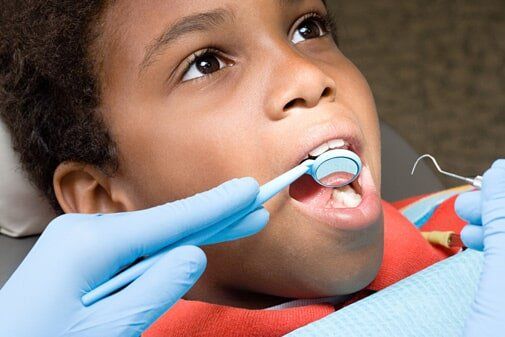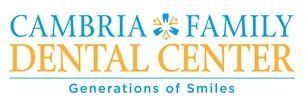COVID-19 Update
COVID-19 is an infectious disease caused by a new coronavirus discovered after an outbreak in Wuhan, China, in December 2019.Since the initial outbreak, this coronavirus, known as SARS-CoV-2, has spread to more than 100 countries around the world, and has affected many thousands of people.
As yet, there’s no vaccine against the novel coronavirus. Researchers are currently working on creating a vaccine specifically for this virus, as well as potential treatments for COVID-19.
The disease is more likely to cause symptoms in older adults and those with underlying health conditions. Most people who develop symptoms of COVID-19 experience:
As yet, there’s no vaccine against the novel coronavirus. Researchers are currently working on creating a vaccine specifically for this virus, as well as potential treatments for COVID-19.
The disease is more likely to cause symptoms in older adults and those with underlying health conditions. Most people who develop symptoms of COVID-19 experience:
- fever
- cough
- shortness of breath
- fatigue
Keep reading to learn more about the current treatment options for COVID-19, what types of treatments are being explored, and what to do if you develop symptoms.
What type of treatment is available for the novel coronavirus?
There currently isn’t a vaccine against developing COVID-19. Antibiotics are also ineffective because COVID-19 is a viral infection and not bacterial.
If your symptoms are more severe, supportive treatments may be given by your doctor or at a hospital. This type of treatment may involve:
- fluids to reduce the risk of dehydration
- medication to reduce a fever
- supplemental oxygen in more severe cases
People who have a hard time breathing on their own due to COVID-19 may need a respirator.
What should you do if you think you have symptoms of COVID-19?
Not everyone with a SARS-CoV-2 infection will feel ill. Some people may even contract the virus and not develop symptoms. When there are symptoms, they’re usually mild and tend to come on slowly.
COVID-19 seems to cause more severe symptoms in older adults and people with underlying health conditions, such as chronic heart or lung conditions.
If you think you have symptoms of COVID-19, follow this protocol:
Gauge how sick you are. Ask yourself how likely it is that you came into contact with the coronavirus. If you live in a region that has had an outbreak, or if you’ve recently traveled abroad, you may be at an increased risk of exposure.
1. Call your doctor. If you have mild symptoms, call your doctor. To reduce transmission of the virus, many clinics are encouraging people to call or use live chat instead of coming into a clinic. Your doctor will evaluate your symptoms and work with local health authorities and the Centers for Disease Control and Prevention (CDC) to determine if you need to be tested.
2. Stay home. If you have symptoms of COVID-19 or another type of viral infection, stay home and get plenty of rest. Be sure to stay away from other people and avoid sharing items like drinking glasses, utensils, keyboards, and phones.
When do you need medical care?
About 80 percentTrusted Source of people recover from COVID-19 without needing hospitalization or special treatment.
If you’re young and healthy with only mild symptoms, your doctor will likely advise you to isolate yourself at home and to limit contact with others in your household. You’ll likely be advised to rest, stay well hydrated, and to closely monitor your symptoms.
If you’re an older adult, have any underlying health conditions, or a compromised immune system, be sure to contact your doctor as soon as you notice any symptoms. Your doctor will advise you on the best course of action.
If your symptoms worsen with home care, it’s important to get prompt medical care. Call your local hospital, clinic, or urgent care to let them know you’ll be coming in, and wear a face mask once you leave your home. You can also call 911 for immediate medical attention.
How to avoid infection from the coronavirus
The novel coronavirus is primarily transmitted from person to person. At this point, the best way to prevent getting infected is to avoid being around people who have been exposed to the virus.
Additionally, according to the CDCTrusted Source, you can take the following precautions to lower your risk of infection:
- Wash your hands thoroughly with soap and water for at least 20 seconds.
- Use hand sanitizer with at least 60 percent alcohol if soap isn’t available.
- Avoid touching your face unless you’ve recently washed your hands.
- Stay clear of people who are coughing and sneezing. The CDC recommends standing at least 6 feet away from anyone who appears to be sick.
- Avoid crowded areas as much as possible.
Older adults are at the highest risk of infection and may want to take extra precautions to avoid coming into contact with the virus.
The bottom line
At this point in time, there’s no vaccine to protect you from the novel coronavirus, also known as SARS-CoV-2. There also are no special medications approved to treat the symptoms of COVID-19.
However, researchers around the world are working hard to develop potential vaccines and treatments.
There’s emerging evidence that some medications may have the potential to treat the symptoms of COVID-19. More large-scale testing is needed to determine if these treatments are safe. Clinical trials for these drugs could take several months.

Cambria Family Dental Center keeps your smile healthy with each visit.
BREATH RX® PRODUCTS
This pleasant tasting mouthwash guarantees fresh breath for hours on end. Unlike other mouthwash products, Breath RX ® Rinse contains no potentially harmful ingredients such as alcohol, which can contribute to serious health problems.
This product is also sold in a kit with toothpaste, tongue spay, and dental floss, which also promotes good dental health and serve to control bad breath.










